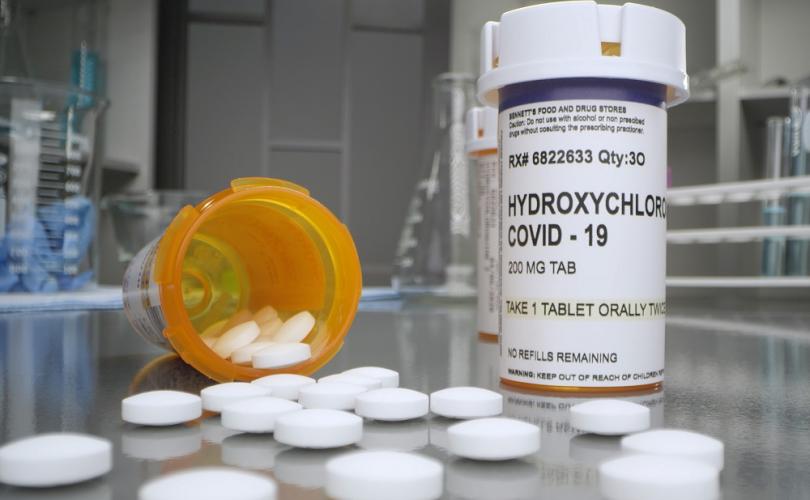Source: Archyde
The Boulware et al randomized clinical trial confirms the efficacy of post-exposure hydroxychloroquine through additional study data following its publication in the New England Journal of Medicine. In our June 4 article relating to the study by Dr. Boulware (Minnesota) published in the NEJM and concluding that hydroxychloroquine did not work when the molecule was given to people after post-exposure to the virus, we had shown that in fact, the data showed significant efficacy when the molecule was given to patients on D + 1, D + 2 or D + 3 after exposure to the virus. In addition, Doctor Boulware had omitted to mention his links of interest with the Gilead laboratory.
Dr Márcio Watanabe from the Statistics Department of the Universidade Federal Fluminense has just confirmed the analyzes that we published on June 4.
In particular, he points to the statistical method used to say whether the effect of the drug is significant or not. Remember that Marcio Watanabe has a doctorate in statistics and therefore his opinion on the issue is very relevant.
In the present problem, the question to be answered is whether the treatment is able to reduce the incidence of symptomatic patients as opposed to the null hypothesis H0 that it will be as good as a placebo. Thus, a one-sided test is the natural choice of the alternative H1 hypothesis in this problem, unlike the two-sided test adopted in their study. »
Here is a summary of his findings on the data from the Boulware study.
“By doing an analysis with these time-dependent data by adopting a simple regression analysis, he concludes that this randomized, double-blind, placebo-controlled trial has statistical evidence, at a 99% confidence level, that the treatment of Covid-19 patients with hydroxychloroquine is effective in reducing the appearance of symptoms if used before or immediately after exposure to the virus.
During 0 to 2 days after exposure to the virus, the estimated relative reduction in symptomatic outcomes is 72% after 0 day, 48.9% after 1 day and 29.3% after 2 days. For 3 days after exposure the estimated relative reduction is 15.7% but the results are not statistically conclusive and for 4 days or more after exposure there is no statistical evidence that hydroxychloroquine is effective in reducing the appearance of symptoms.
These results show that the time between infection and the start of treatment is crucial for the efficacy of hydroxychloroquine as a treatment for Covid-19 …
This is strong statistical evidence that treatment with hydroxychloroquine reduces the proportion of symptomatic patients when used as prophylaxis immediately after exposure, especially if treatment begins within 2 days ”
What is very important with this “counter-study” is that not only does it confirm the effectiveness of hydroxychloroquine in post-exposure but also on the basis of a randomized study, and therefore not open to criticism by pure “Methodists”. “.
Another study decried by the scientific community, which asks questions about the treatment received by hydroxychloroquine
Once again, it seems that this Boulware study is part of the batch of studies designed so that the efficacy of hydroxychloroquine is concluded to be insignificant by playing in particular on the doses received, the start of treatment but also the statistical tests used, aimed at to estimate the significance or not of the effect. During the first publication, Mr Boulware did not mention his links of interest with the pharmaceutical company Gilead, which manufactures Remdesivir, a drug with uncertain therapeutic benefit and harmful side effects.
Many scientists around the world are protesting the number of studies that are biased or designed to cover up the effectiveness of hydroxychloroquine by rendering the results statistically insignificant.
The devil is in the details and the details show a lot of data manipulation lately regarding hydroxychloroquine. Many recent publications lean in favor of early treatment of Covid 19 with dual or triple therapy as confirmed by the eminent epidemiologist Harvey Risch in his column today:
Going forward, I believe this “unnecessary” episode regarding hydroxychloroquine will be studied by sociologists of medicine as a classic example of how extra-scientific factors have taken precedence over clear medical evidence. But for now, reality demands a clear, scientific position on the evidence and its direction. For the sake of high-risk patients, for the sake of our parents and grandparents, for the sake of the unemployed, for our economy and for our nation, especially those who are disproportionately affected, we must start treating immediately.
Always ask yourself: who benefits from the crime?
Related:
61 studies (37 peer reviewed) Early treatment studies are very positive – COVID deaths: 621, 206
Hydroxychloroquine significantly lowers COVID-19 death rate, Henry Ford Health study finds

